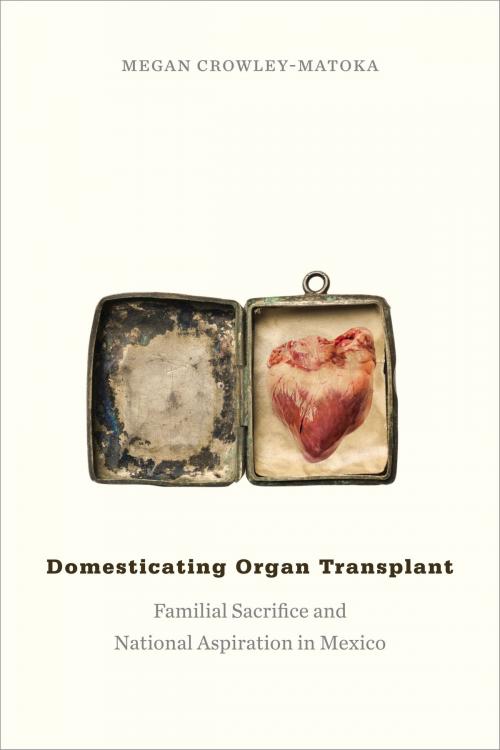Domesticating Organ Transplant
Familial Sacrifice and National Aspiration in Mexico
Nonfiction, History, Americas, Mexico, Social & Cultural Studies, Social Science, Anthropology| Author: | Megan Crowley-Matoka | ISBN: | 9780822374633 |
| Publisher: | Duke University Press | Publication: | March 10, 2016 |
| Imprint: | Duke University Press Books | Language: | English |
| Author: | Megan Crowley-Matoka |
| ISBN: | 9780822374633 |
| Publisher: | Duke University Press |
| Publication: | March 10, 2016 |
| Imprint: | Duke University Press Books |
| Language: | English |
Organ transplant in Mexico is overwhelmingly a family matter, utterly dependent on kidneys from living relatives—not from stranger donors typical elsewhere. Yet Mexican transplant is also a public affair that is proudly performed primarily in state-run hospitals. In Domesticating Organ Transplant, Megan Crowley-Matoka examines the intimate dynamics and complex politics of kidney transplant, drawing on extensive fieldwork with patients, families, medical professionals, and government and religious leaders in Guadalajara. Weaving together haunting stories and sometimes surprising statistics culled from hundreds of transplant cases, she offers nuanced insight into the way iconic notions about mothers, miracles, and mestizos shape how some lives are saved and others are risked through transplantation. Crowley-Matoka argues that as familial donors render transplant culturally familiar, this fraught form of medicine is deeply enabled in Mexico by its domestication as both private matter of home and proud product of the nation. Analyzing the everyday effects of transplant’s own iconic power as an intervention that exemplifies medicine’s death-defying promise and commodifying perils, Crowley-Matoka illuminates how embodied experience, clinical practice, and national identity produce one another.
Organ transplant in Mexico is overwhelmingly a family matter, utterly dependent on kidneys from living relatives—not from stranger donors typical elsewhere. Yet Mexican transplant is also a public affair that is proudly performed primarily in state-run hospitals. In Domesticating Organ Transplant, Megan Crowley-Matoka examines the intimate dynamics and complex politics of kidney transplant, drawing on extensive fieldwork with patients, families, medical professionals, and government and religious leaders in Guadalajara. Weaving together haunting stories and sometimes surprising statistics culled from hundreds of transplant cases, she offers nuanced insight into the way iconic notions about mothers, miracles, and mestizos shape how some lives are saved and others are risked through transplantation. Crowley-Matoka argues that as familial donors render transplant culturally familiar, this fraught form of medicine is deeply enabled in Mexico by its domestication as both private matter of home and proud product of the nation. Analyzing the everyday effects of transplant’s own iconic power as an intervention that exemplifies medicine’s death-defying promise and commodifying perils, Crowley-Matoka illuminates how embodied experience, clinical practice, and national identity produce one another.















